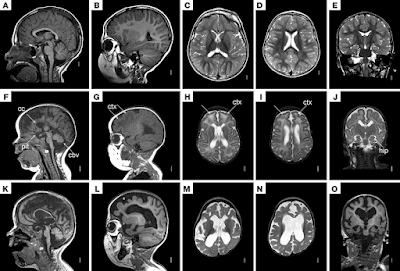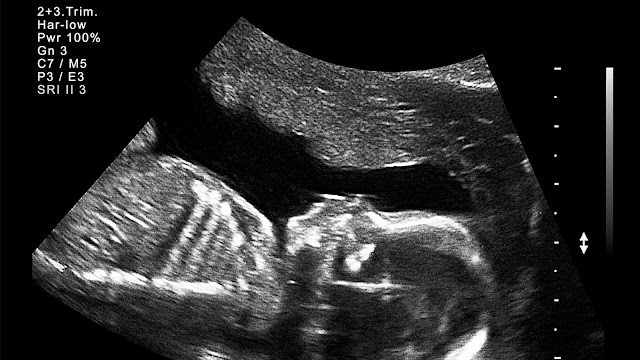The battle against obesity is a significant public health challenge worldwide. With millions struggling to lose weight and keep it off, weight loss medications have emerged as a potential solution for those who find traditional methods like diet and exercise insufficient. But do these drugs really work, and are they a safe and effective option for everyone? This blog delves into the effectiveness, safety, and considerations surrounding weight loss medications to help you make an informed decision.
1. Understanding Weight Loss Medications
Weight loss medications, often referred to as anti-obesity drugs, are designed to help individuals lose weight by either suppressing appetite, increasing feelings of fullness, or reducing the absorption of fat. These medications are typically prescribed to individuals who are obese (with a Body Mass Index (BMI) of 30 or higher) or overweight (with a BMI of 27 or higher) and who have weight-related health conditions such as type 2 diabetes, hypertension, or heart disease.
There are two main categories of weight loss drugs:
1.Prescription Medications:
These are drugs approved by regulatory bodies like the U.S. Food and Drug Administration (FDA) for the treatment of obesity. Common examples include Orlistat (Xenical), Phentermine-Topiramate (Qsymia), Liraglutide (Saxenda), and Naltrexone-Bupropion (Contrave).
2.Over-the-Counter (OTC) Medications and Supplements:
These are available without a prescription and include products like Alli (a lower dose of Orlistat) and various herbal supplements that claim to promote weight loss.
2. How Weight Loss Medications Work
Weight loss drugs operate through different mechanisms:
- Appetite Suppressants: Medications like Phentermine and Phentermine-Topiramate work by affecting the central nervous system to reduce appetite, making you feel fuller with less food.
- Fat Absorption Inhibitors: Orlistat works by inhibiting the enzyme lipase, which is responsible for breaking down dietary fats. As a result, about 25% of the fat consumed is excreted undigested.
- Hormonal Regulation: Liraglutide mimics a hormone called GLP-1, which regulates appetite and insulin release, leading to reduced hunger and improved blood sugar control.
- Combination Drugs: Naltrexone-Bupropion combines two medications that target different areas of the brain to reduce hunger and cravings.
3. Effectiveness of Weight Loss Medications
The effectiveness of weight loss drugs varies from person to person and depends on several factors, including the type of medication, adherence to the prescribed regimen, and accompanying lifestyle changes such as diet and exercise.
Clinical Trials and Studies:
- Orlistat: Clinical trials have shown that Orlistat can result in an average weight loss of 5-10% of body weight over 12 months. This means that if you weigh 200 pounds, you could expect to lose 10-20 pounds with Orlistat, provided you also follow a reduced-calorie diet and engage in regular physical activity.
- Phentermine-Topiramate (Qsymia): This combination drug has been shown to produce significant weight loss, with participants losing an average of 5-10% of their body weight in one year. In some cases, weight loss can be as high as 15% of body weight.
- Liraglutide (Saxenda): Liraglutide has been associated with an average weight loss of 5-10% of body weight. Some studies suggest that Liraglutide may also help improve other health markers like blood pressure and cholesterol levels.
- Naltrexone-Bupropion (Contrave): Participants in clinical trials lost an average of 4-9% of their body weight over a year when taking Contrave alongside lifestyle modifications.
It's important to note that weight loss with these medications tends to plateau after about six months, and long-term maintenance of weight loss requires ongoing effort.
Comparison with Lifestyle Modifications:
While weight loss medications can provide an additional boost, they are generally not as effective as lifestyle changes alone. Diet and exercise remain the cornerstone of weight management, and medications are often most effective when used as part of a comprehensive weight loss plan that includes these lifestyle modifications.
4. Safety and Side Effects
Weight loss medications are not without risks. Each drug comes with its own set of potential side effects, and these must be carefully weighed against the benefits.
- Orlistat: Common side effects include gastrointestinal issues like oily stools, flatulence, and diarrhea. These side effects are typically mild and tend to improve over time. Rarely, Orlistat has been associated with liver injury.
- Phentermine-Topiramate: Side effects may include dry mouth, insomnia, dizziness, constipation, and a tingling sensation in the hands and feet. Phentermine, a stimulant, can also raise heart rate and blood pressure.
- Liraglutide: Common side effects include nausea, vomiting, diarrhea, and constipation. In rare cases, it has been linked to pancreatitis and gallbladder disease.
- Naltrexone-Bupropion: Side effects may include nausea, headache, dizziness, constipation, and insomnia. This medication is contraindicated in individuals with a history of seizures, as it can increase the risk of seizure activity.
Due to the potential risks, weight loss medications are typically prescribed only when the benefits outweigh the risks. They are not recommended for individuals with certain health conditions or for pregnant women.
5. Psychological and Behavioral Considerations
The psychological aspect of weight loss is often overlooked but is crucial to the success of any weight loss plan, including those involving medications. Weight loss drugs can help curb appetite or reduce fat absorption, but they do not address the underlying psychological and behavioral factors that contribute to overeating and obesity.
- Emotional Eating: Many individuals struggle with emotional eating, where food is used as a coping mechanism for stress, anxiety, or depression. Weight loss medications do not address these issues and may require concurrent psychological support, such as counseling or therapy, to be effective.
- Behavioral Habits: Long-term success with weight loss medications often depends on making lasting changes to diet and exercise habits. Without these changes, any weight lost with the help of medication is likely to be regained once the medication is discontinued.
- Expectations: It's important for individuals considering weight loss medications to have realistic expectations. These drugs can help with weight loss, but they are not a magic solution. The process requires effort, patience, and commitment.
6. Who Should Consider Weight Loss Medications?
Weight loss medications are not for everyone. They are generally recommended for individuals who:
- Have a BMI of 30 or higher.
- Have a BMI of 27 or higher with obesity-related health conditions, such as type 2 diabetes, hypertension, or sleep apnea.
- Have been unable to lose weight or maintain weight loss through diet and exercise alone.
- Are committed to making the necessary lifestyle changes to support long-term weight management.
Before starting any weight loss medication, it is crucial to have a thorough discussion with a healthcare provider. They can help determine whether a particular medication is appropriate, considering factors such as your medical history, current health status, and weight loss goals.
7. Long-Term Considerations and Maintenance
One of the biggest challenges with weight loss medications is maintaining the weight loss after discontinuing the drug. Many individuals experience weight regain once they stop taking the medication, highlighting the importance of adopting sustainable lifestyle changes.
- Lifestyle Integration: To maximize the effectiveness of weight loss medications, they should be used as a tool to support lifestyle changes, not as a replacement for them. This means continuing to follow a healthy diet, exercising regularly, and addressing any emotional or behavioral factors that contribute to weight gain.
- Ongoing Support: Regular follow-up with a healthcare provider is essential for monitoring progress, adjusting the treatment plan as needed, and providing support and encouragement. Some individuals may benefit from ongoing psychological support to address underlying issues that contribute to weight gain.
- Gradual Discontinuation: In some cases, gradually tapering off the medication rather than stopping abruptly may help prevent weight regain. This should be done under the supervision of a healthcare provider.
8. Conclusion: Are Weight Loss Medications Effective?
Weight loss medications can be an effective tool for some individuals, particularly those who struggle with obesity-related health conditions and have difficulty losing weight through diet and exercise alone. These drugs can help jump-start weight loss and provide additional support for those committed to making lasting lifestyle changes.
However, weight loss medications are not a standalone solution. Their effectiveness depends on a comprehensive approach that includes dietary changes, regular physical activity, and psychological support. Moreover, the potential side effects and risks associated with these drugs mean that they are not suitable for everyone.
Ultimately, the decision to use weight loss medications should be made in consultation with a healthcare provider, taking into account individual health needs, preferences, and goals.
For those who qualify and are prepared to make the necessary lifestyle adjustments, weight loss medications can offer a valuable assist in the journey toward better health and well-being. However, they should be viewed as one part of a broader strategy rather than a quick fix.

.jpeg)

.jpeg)
.jpeg)




.jpeg)
.jpeg)

0 Comments